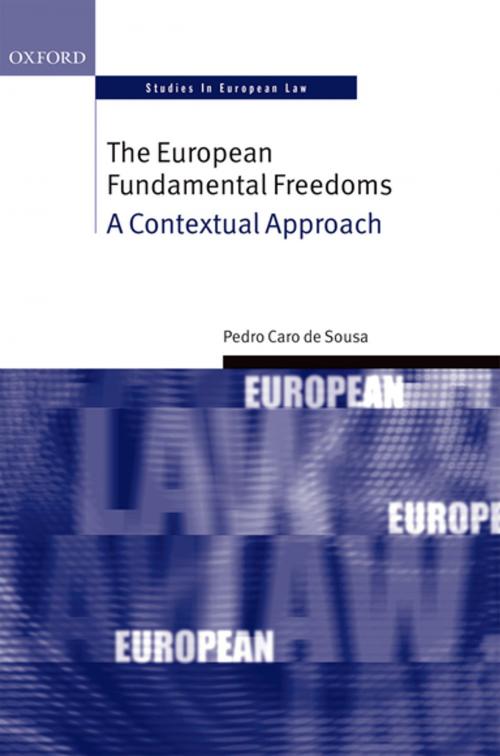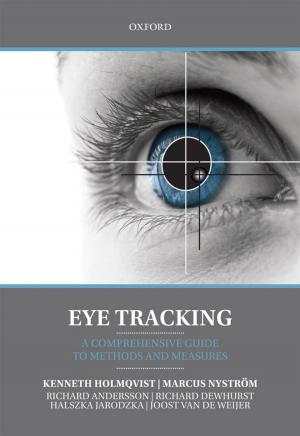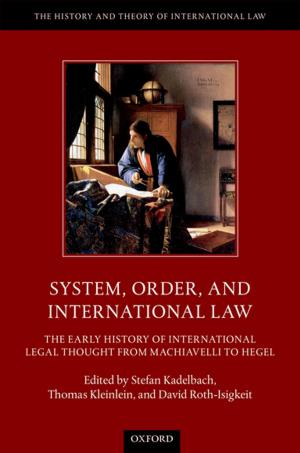The European Fundamental Freedoms
A Contextual Approach
Nonfiction, Reference & Language, Law, Constitutional, Social & Cultural Studies, Political Science| Author: | Pedro Caro de Sousa | ISBN: | 9780191043536 |
| Publisher: | OUP Oxford | Publication: | April 23, 2015 |
| Imprint: | OUP Oxford | Language: | English |
| Author: | Pedro Caro de Sousa |
| ISBN: | 9780191043536 |
| Publisher: | OUP Oxford |
| Publication: | April 23, 2015 |
| Imprint: | OUP Oxford |
| Language: | English |
Contextual approaches take into account not only the internal legal perspective reflected in the official discourse supporting legal decisions, but also an external dimension related to the institutional environment in which the law is applied. This external dimension - which can be understood by reference to studies that look at the law from the outside as the subject of sociological, economic, or philosophical analysis - is usually ignored, or not addressed systematically by studies that focus on the internal perspective. By systematically internalizing these 'external' elements into legal theory and practice, contextual approaches lead to the development of better descriptive theories and more attractive normative models of the law, specifically EU law, than de-contextualized approaches. Additionally, contextual approaches are more self-aware than de-contextualized approaches, since they are able to make sense of the role that legal practice (by judges, legal practitioners, and academics) plays in the development of the law. It is through a contextual approach that Pedro Caro de Sousa develops a general theory of European constitutional law, in particular free movement law and the EU fundamental freedoms. As a contribution to the development of EU constitutionalism, this monograph focuses on the interplay between the different normative concerns behind the EU's market freedoms identified in traditional legal discourse. Moving away from traditional studies of free movement law, Caro de Sousa's book offers a fresh approach to free movement law. Rather than proposing normative approaches, he uses this approach to construct a broader thesis: that the EU law of free movement can best be understood as an interplay of traditional legal doctrines and practices and the specific institutional environment where this law is applied and developed.
Contextual approaches take into account not only the internal legal perspective reflected in the official discourse supporting legal decisions, but also an external dimension related to the institutional environment in which the law is applied. This external dimension - which can be understood by reference to studies that look at the law from the outside as the subject of sociological, economic, or philosophical analysis - is usually ignored, or not addressed systematically by studies that focus on the internal perspective. By systematically internalizing these 'external' elements into legal theory and practice, contextual approaches lead to the development of better descriptive theories and more attractive normative models of the law, specifically EU law, than de-contextualized approaches. Additionally, contextual approaches are more self-aware than de-contextualized approaches, since they are able to make sense of the role that legal practice (by judges, legal practitioners, and academics) plays in the development of the law. It is through a contextual approach that Pedro Caro de Sousa develops a general theory of European constitutional law, in particular free movement law and the EU fundamental freedoms. As a contribution to the development of EU constitutionalism, this monograph focuses on the interplay between the different normative concerns behind the EU's market freedoms identified in traditional legal discourse. Moving away from traditional studies of free movement law, Caro de Sousa's book offers a fresh approach to free movement law. Rather than proposing normative approaches, he uses this approach to construct a broader thesis: that the EU law of free movement can best be understood as an interplay of traditional legal doctrines and practices and the specific institutional environment where this law is applied and developed.















